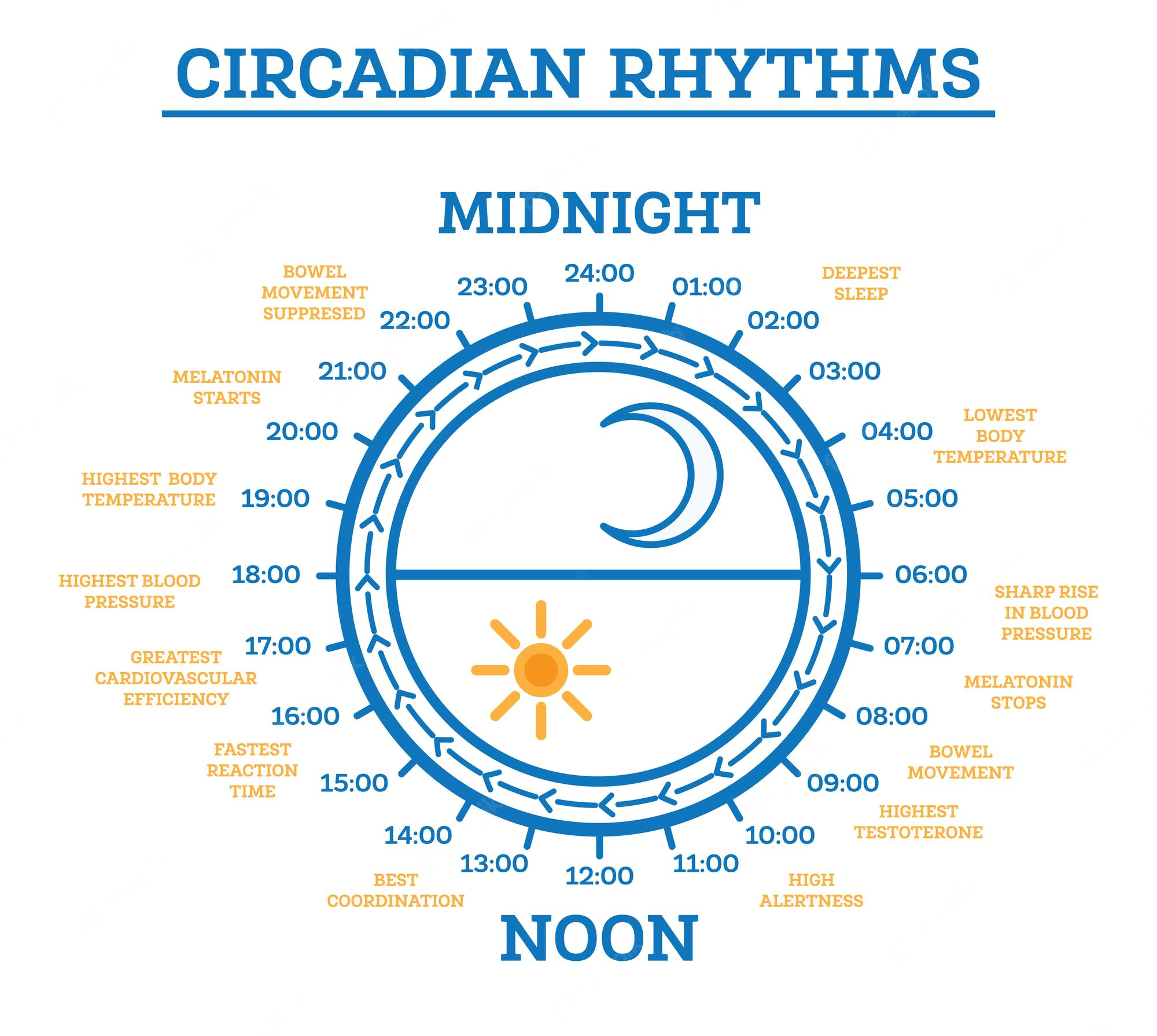4 Tips For Proper Circadian Rhythm You Need To Know

Have you heard of circadian lighting? Perhaps you’ve heard about human-centric lighting or read how blue light can disrupt your sleep cycle. You may wonder what Circadian Lighting is and what you need to know before implementing it in your building or space. Circadian lighting is light that has a biological effect on our circadian system. A healthy circadian rhythm is essential to better long-term health and sleeping habits. Circadian lighting’s goal is to send signals to our brain, telling our bodies what functions to perform, whether day or night, according to the time of day. Many new designs incorporate circadian lighting to improve visual environments, increase productivity, and promote health.
While there are many unanswered questions regarding circadian lighting and its adoption, the conversations are inspiring. As lighting designers and engineers, we should consider some of the main themes of circadian lighting but also weigh the ‘unknowns’ and concerns before producing designs that support a healthy circadian rhythm.
What are Circadian Rhythms?
 Circadian rhythms are natural internal processes that regulate the sleep-wake cycle. And light, whether natural or artificial, has the most significant influence on this rhythm. Photoreceptors in the eye pick up ambient lighting cues to determine the time of day. These cues regulate the sleep-wake cycle by controlling the body’s production of melatonin (the sleep hormone). All organisms, including plants, use circadian rhythms to regulate their internal cycles.
Circadian rhythms are natural internal processes that regulate the sleep-wake cycle. And light, whether natural or artificial, has the most significant influence on this rhythm. Photoreceptors in the eye pick up ambient lighting cues to determine the time of day. These cues regulate the sleep-wake cycle by controlling the body’s production of melatonin (the sleep hormone). All organisms, including plants, use circadian rhythms to regulate their internal cycles.
For you, it’s the sleep-wake cycle, staying awake during the day, staying focused (in good lighting), and regenerating at night. Light is one of the most significant influences on our circadian rhythms. As the pressure to be more sharp increases, indoor industries such as healthcare, education, and office spaces are taking this new research and technology into consideration. A strategically designed system can positively impact building occupants’ productivity, alertness, and decrease sick days. Using light to influence humans’ Circadian rhythms is relatively new to the lighting industry, but an exciting advancement! Without a lighting system capable of producing these effects automatically throughout the day, circadian lighting would be tough to make consistent. We use the combination of Ketra lighting, Lutron shading, and the Homeworks control system to produce effortless circadian lighting on autopilot.
According to studies, healthy circadian rhythms and coordination, cardiovascular activity, cognition, weight control, immunological function, and digestion can be related to one another. To regulate these biological processes, developing the following daily habits to support your sleep-wake cycle is essential.
1. Keep a regular sleeping pattern
Setting and maintaining a sleep schedule will help you maintain your circadian rhythm. Waking up consistently every day is necessary. Your body clock will get conditioned to help you sleep through the night if you follow a regular sleep-wake schedule. After a sleepless night, resist the impulse to catch up on your sleep. On the weekends, it’s typical to want to sleep in or take a lengthy nap, but doing so can harm your circadian rhythm.
Around nine o’clock at night, the body is often signaled to sleep. Around 7:30 a.m., it begins to slow down, which signals the body to wake up. Try to plan your sleep hours so that you have extra time to unwind before bed during these periods.
2. Inhale fresh air in the morning
Early morning light exposure causes your brain to create less melatonin. When your alarm goes off, you should open the blinds right away. Take a walk outside or enjoy your coffee on the porch if you have the time. Your internal clock will be reset for the day by exposure to sunshine.
3. Later in the day, stay away from large meals and coffee
Sleeping patterns might be affected by what you eat. Caffeine and nicotine are stimulants that can cause your brain to be triggered to keep your body active, while food and alcohol create heartburn. Allow your body 12 to 14 hours to rest without eating (this can include the hours you sleep). Your liver will no longer have to work as hard all night if you practice fasting. Your master clock sends messages to the liver directing it to cease producing the enzymes needed to convert calories into energy and to start conserving energy when it causes the release of melatonin. More food is stored in the body than is burned when you eat excessively before bedtime, which makes your liver work harder.
4. Limit your nightly screen time
In the same way that morning light has an impact on your circadian cycle so does evening light. Your brain can be tricked into believing it is still daylight by household light, such as lamp light and the blue light emitted by laptops, smartphones, and tablets, which prevents it from producing melatonin. Avoid scrolling social media in bed and start reducing the lights two hours before bedtime. You can use a blue light filter app on your device or wear blue light-blocking glasses if you work nights or need to use a screen in the evenings.
Your body maintains a 24-hour body clock naturally through your circadian rhythm, which supports the maintenance of a regular sleep-wake cycle. You can maintain this important bodily function by leading a healthy, active lifestyle that encourages restful sleep.
Circadian Lighting For Your Home
Without a lighting designer, developing an interior design project is like going to a restaurant and ordering only the bread. Although the bread is fantastic, there are a lot more delicious foods that you are skipping. A space gains a new depth through expertly positioned lighting, bringing an interior design idea to life.
Unfortunately, in today’s reality, spending much time outside in daylight is nearly impossible, necessitating improvements to the artificial lighting conditions of our indoor environments. Adapting indoor lighting to our biological needs can significantly impact our daily well-being and nighttime sleep. Daylight exposure is essential for healthy circadian rhythms, which indirectly influence sleep onset at night.
Excellent lighting adds height and depth, illuminates cozy areas, and highlights your most striking features. The right amount of light and shade is crucial for revitalizing a room’s atmosphere.

